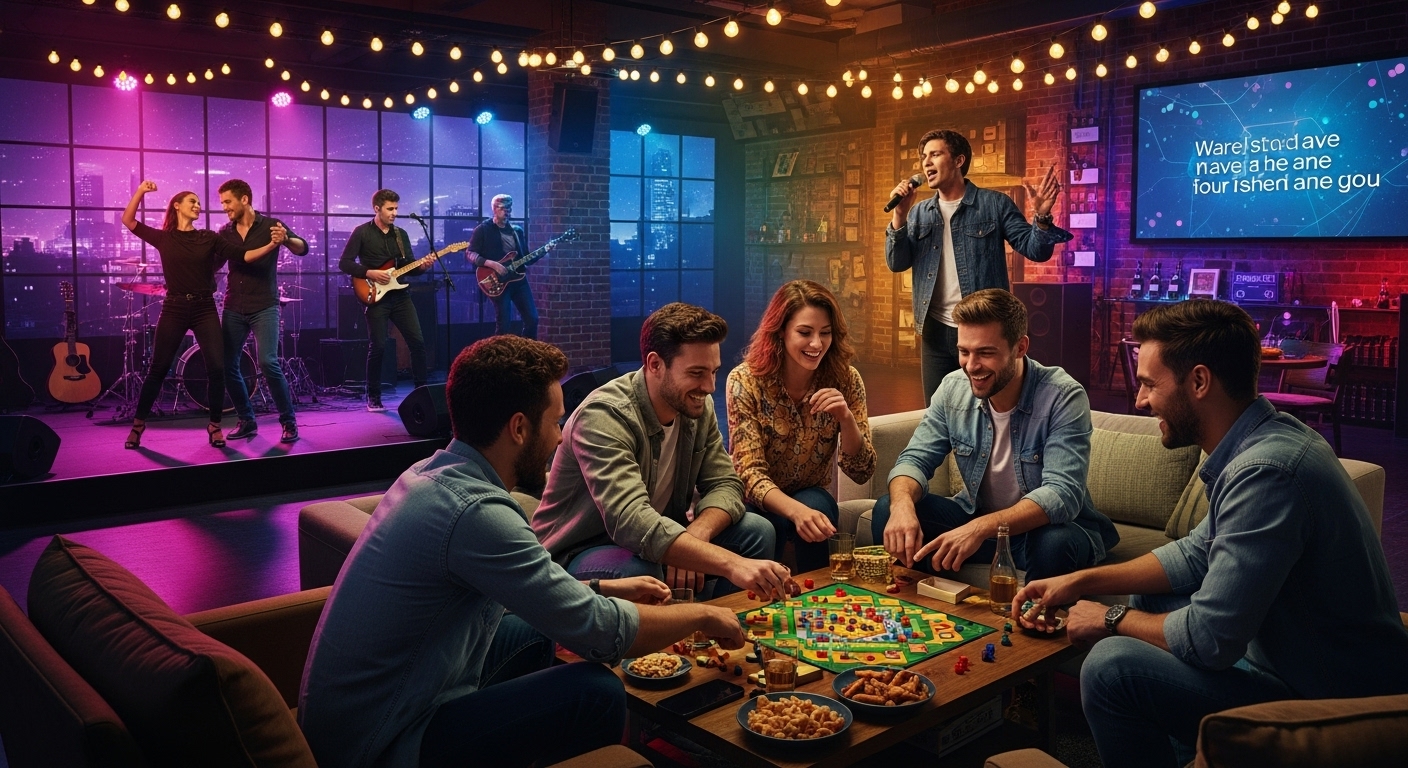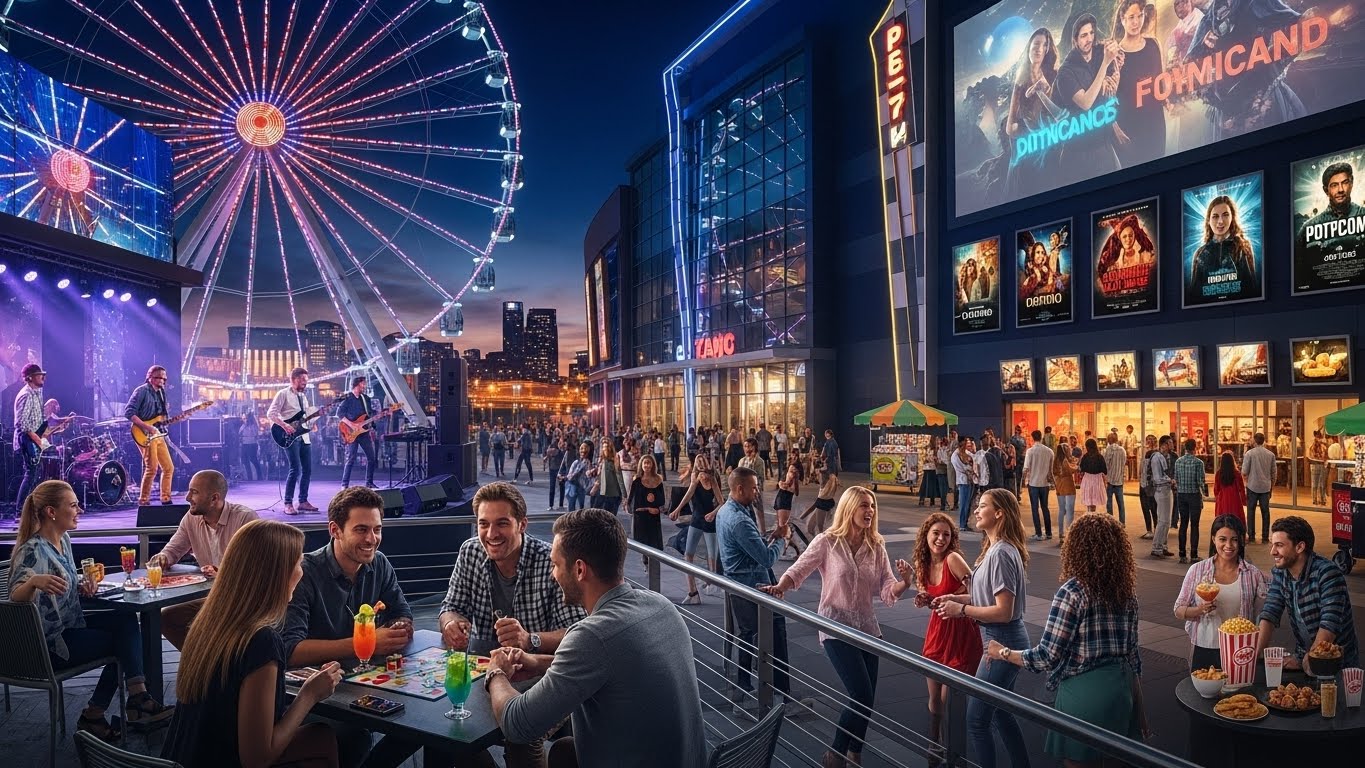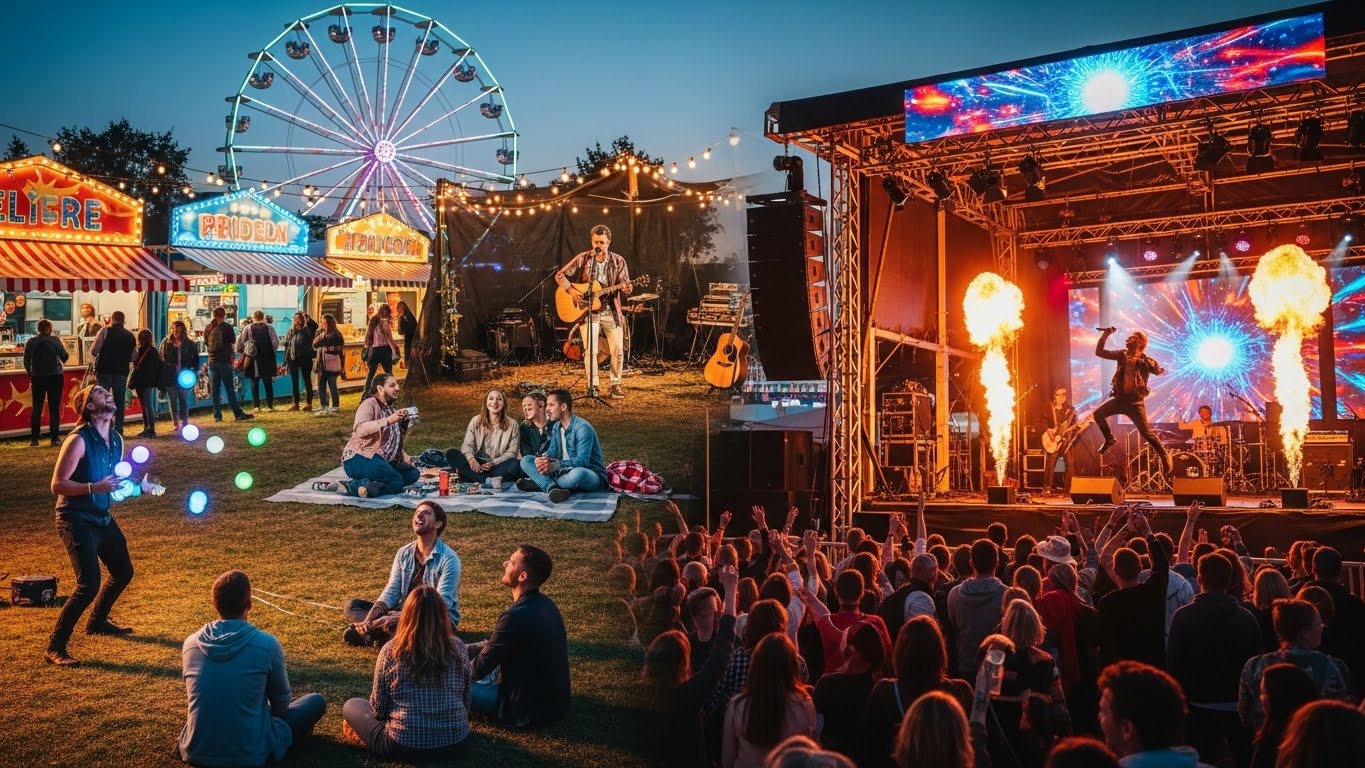Introduction: The Ever-Evolving World of Entertainment
Entertainment is a fundamental part of human life. It offers an escape, sparks imagination, brings people together, and reflects cultural values. Over the centuries, entertainment has transformed in form and function, adapting to changes in society, technology, and audience preferences.
Today, we live in an era where entertainment is more accessible and diverse than ever before. From streaming platforms and immersive video games to live performances and social media, the ways people engage with entertainment have expanded exponentially.
This blog explores the evolution of entertainment, its multifaceted nature, the impact of technology, the rise of new creative forms, and its significance in shaping individual and collective experiences. Whether you are a casual consumer or a passionate creator, understanding entertainment’s dynamic landscape enriches the way we appreciate leisure and culture.
The History of Entertainment: From Ancient Rituals to Modern Media
Entertainment has deep roots in human civilization. Ancient societies used storytelling, music, dance, and theater as means to educate, celebrate, and connect communities.
The Greeks pioneered drama with tragedies and comedies performed in amphitheaters, laying foundations for Western performing arts. Similarly, in Asia, forms like Chinese opera and Japanese Noh theater flourished, blending storytelling with elaborate costumes and music.
The invention of the printing press in the 15th century enabled literature to reach broader audiences, changing the entertainment landscape by allowing people to engage with stories privately.
The Industrial Revolution brought technological advances that transformed entertainment once again. Photography, cinema, and radio created new ways for people to be entertained at scale. The 20th century saw the rise of television, revolutionizing entertainment consumption and making it a central part of daily life.
Entertainment Today: A Multidimensional Landscape
Modern entertainment is no longer confined to traditional forms. It is a vast and varied industry encompassing numerous formats and platforms.
Film and Television
Cinema remains a dominant form of entertainment, offering visual storytelling that captivates global audiences. Television, once limited to scheduled broadcasts, has evolved with on-demand streaming, enabling viewers to watch content whenever and wherever they choose.
Music and Live Performances
Music has universal appeal, with genres ranging from classical to hip-hop, catering to diverse tastes. Live concerts and festivals provide immersive experiences, uniting fans and artists in vibrant celebrations.
Video Games and Interactive Media
Gaming has grown into a massive entertainment sector, blending storytelling, competition, and social interaction. From casual mobile games to complex narratives in role-playing games, video games offer unique immersive experiences.
Literature and Digital Publishing
Books continue to inspire and entertain, with digital formats making literature more accessible. Audiobooks and podcasts further diversify how stories and information are consumed.
Social Media and User-Generated Content
Platforms like TikTok, Instagram, and YouTube have revolutionized entertainment by empowering individuals to create and share content. This democratization has fostered new forms of creativity and community engagement.
The Role of Technology in Shaping Entertainment
Technological innovation is a driving force behind the evolution of entertainment.
Streaming and On-Demand Access
The rise of high-speed internet and powerful devices has made streaming the dominant mode of content consumption. Services offer vast libraries of movies, shows, music, and games, accessible anytime, anywhere.
Virtual and Augmented Reality
Emerging technologies like VR and AR are transforming entertainment into immersive experiences. Virtual concerts, interactive storytelling, and augmented reality games provide new ways to engage audiences.
Artificial Intelligence and Personalization
AI enhances entertainment by tailoring content recommendations, creating realistic virtual characters, and even generating music or scripts. Personalized experiences help keep audiences engaged and satisfied.
Social Connectivity and Interactive Experiences
Technology enables real-time interaction between creators and audiences. Live streaming, chat features, and social sharing foster active participation and community building.
Cultural Impact of Entertainment
Entertainment shapes and reflects society in profound ways.
Preserving and Promoting Culture
Films, music, and literature preserve cultural heritage and introduce audiences to diverse traditions and perspectives. Entertainment serves as a bridge between generations and communities.
Influencing Social Norms and Trends
Entertainment influences fashion, language, behavior, and values. Popular media often sets trends that ripple through society, shaping public discourse and identity.
Fostering Empathy and Understanding
Storytelling allows audiences to experience different viewpoints and emotions, promoting empathy and cross-cultural understanding.
Driving Social Change
Entertainment can raise awareness about social issues and inspire activism. Documentaries, music, and theater have historically been powerful tools for social commentary and reform.
The Business of Entertainment: Industry Dynamics
The entertainment industry is a complex economic ecosystem involving creators, distributors, marketers, and consumers.
Content Creation and Production
Creating entertainment requires talent, creativity, and significant investment. Writers, directors, musicians, and developers collaborate to produce compelling content.
Distribution Channels
Traditional theaters, television networks, record stores, and bookstores have been joined by digital platforms and streaming services that reach global audiences instantly.
Marketing and Promotion
Effective marketing is crucial for capturing audience attention in a crowded marketplace. Social media campaigns, influencer partnerships, and experiential marketing are common strategies.
Monetization Models
Entertainment monetizes through ticket sales, subscriptions, advertising, merchandising, and licensing deals. Innovative models like crowdfunding and microtransactions have emerged alongside traditional revenue streams.
The Psychology of Entertainment: Why We Seek It
Understanding why people engage with entertainment helps explain its enduring appeal.
Escapism and Relaxation
Entertainment offers a break from daily stresses, transporting audiences into different worlds and experiences.
Social Connection
Shared entertainment experiences foster bonding and community, whether through watching a movie with friends or participating in online gaming.
Stimulation and Challenge
Games and interactive media provide mental stimulation and problem-solving challenges, satisfying cognitive needs.
Identity and Expression
Entertainment allows individuals to explore identity, values, and emotions, often inspiring creativity and self-expression.
Future Trends in Entertainment
The entertainment landscape is continually evolving, influenced by technological advances and changing consumer preferences.
Immersive Experiences
Expect greater integration of VR, AR, and mixed reality to create deeply immersive entertainment across gaming, storytelling, and live events.
Artificial Intelligence Creativity
AI-generated content will become more sophisticated, augmenting human creativity and enabling personalized storytelling.
Cross-Platform Integration
Seamless experiences across devices and media types will blur boundaries between film, games, social media, and live performances.
Sustainability and Ethical Entertainment
Audiences increasingly demand sustainable production practices and socially responsible content that reflects diverse voices.
Conclusion: The Endless Journey of Entertainment
Entertainment is a mirror and a catalyst for human culture, evolving with each technological breakthrough and societal shift. Its ability to adapt and innovate ensures it remains central to our lives, providing joy, connection, and inspiration.
As we look to the future, entertainment will continue to push boundaries, blend realities, and amplify creativity, inviting us all to participate in its ever-expanding world. Whether through a gripping film, a moving song, an exhilarating game, or a shared live experience, entertainment enriches our collective human story.



